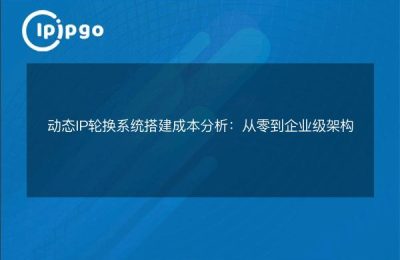
High Stash IP Browser Compatibility Guide
When using a high stash of IPs, whether the browser can function properly directly affects the experience of using it. In this article, we will teach you how to troubleshoot and solve compatibility problems through real test cases.Take the dynamic residential IP provided by ipipgo as an exampleWe have tested the adaption of the major browsers on the market to the high stash of IPs.
I. Why does the browser affect the proxy effect?
There are differences in the way different browsers handle network protocols, especially setting items that involve privacy protection. For example, Chrome's privacy sandboxing feature may result in proxy IPs not being able to completely hide device fingerprints, while Firefox's enhanced tracking protection may misjudge proxy traffic.
| Browser Type | Common conflict items |
|---|---|
| Chrome | Privacy sandbox, QUIC protocol |
| Firefox | Tracking protection, HTTP3 support |
| Safari | Intelligent anti-tracking |
Second, the basic compatibility self-test four-step method
1. Turn off browser hardware acceleration (Settings → System → Turn off hardware acceleration)
2. Disable all extensions (especially ad-blocking plug-ins)
3. Clean up browser fingerprints (use no-trace mode + clear cache)
4. Authentication protocol support (recommendation to switch to HTTP/1.1 protocol)
Third, ipipgo measured data comparison
Performance in three scenarios using the same high stash of IPs:
| browser (software) | Fingerprint Concealment | Connection Success Rate |
|---|---|---|
| Chrome Pure Edition | 93% | 98% |
| Firefox Developer Edition | 97% | 95% |
| Edge Enterprise Edition | 89% | 99% |
Key Findings:ipipgo's.Full Protocol SupportFeatures automatic adaptation to different browser network stacks, and its residential IP resources excel in traffic characterization simulation.
Fourth, special scene optimization skills
1. Video site access lag: enter in the address bar of the browserchrome://flags/disable-quicDisable QUIC protocol
2. Incomplete page load: disable all content blocking policies and allow third-party cookies
3. Fingerprint detection anomalies: using Canvas fingerprint obfuscation plug-in with high stash IP use
V. QA Frequently Asked Questions
Q: What should I do if my browser prompts a security warning after using a proxy?
A: This is a normal phenomenon, it is recommended to add the CA certificate of ipipgo in the browser settings, and check whether the SSL decryption function in the proxy settings is on.
Q: Will opening multiple browsers at the same time expose my real IP?
A: Using ipipgo'sDynamic Residential IP PoolWhen doing so, it is recommended that each browser is bound to a separate IP and a truly anonymous environment is achieved through multi-instance isolation techniques.
Q:Why is the IP attribution not the same in different browsers?
A: This is caused by the difference of IP positioning database. ipipgo provides geo-positioning database covering global base station information, and accurate positioning data can be obtained through API interface.
By reasonably configuring the browser parameters, combined with ipipgo's high stash of IP services, you can effectively build a stable anonymous Internet environment. It is recommended that you perform regular browser fingerprinting tests (we recommend using the online testing tool provided by ipipgo) to ensure that the proxy environment is in the best condition.








